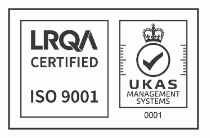Having access to AI tools at the palm of your hands is no longer a futuristic concept but a new reality, and with that proliferation it is reshaping workplaces across industries. From streamlining daily operations to enabling data-driven decision-making, when done right, integration of these tools into the workplace has the potential to enhance productivity and efficiency, as well as to foster innovation by allowing employees to focus on more strategic and creative tasks. As organisations adapt to a rapidly evolving digital landscape, for a growing number of industries, adopting AI has become an indispensable part of staying competitive.
AI applications in the workplace span a variety of functions. Automating tasks such as data entry, scheduling, and customer service allows businesses to save time and allocate resources more effectively. AI can also enhance recruitment processes by identifying top candidates and streamlining onboarding based on pre-set criteria. AI-driven analytics can also help organisations understand workforce trends and design targeted training programmes to stay competitive. Language translation tools simplify communication in multilingual teams and for businesses with an international outlook, while sustainability-focused AI solutions can optimise energy use and reduce waste.
Launched in late 2022 by OpenAI, ChatGPT (now one of many tools available) quickly gained popularity for its ability to generate human-like text, making it a valuable tool for content creation, customer service, and other communication activities. Initially adopted for simple text-based tasks, its integration has evolved into more complex roles such as brainstorming, drafting business strategies, and supporting technical writing. This adaptability has led businesses to explore innovative applications, demonstrating how AI tools can augment, rather than replace, human capabilities.
Despite its transformative potential, adopting AI comes with challenges. Ethical concerns, such as avoiding bias in algorithms, and navigating regulations like the EU AI Act require careful planning. Privacy concerns also demand strict adherence to data protection standards. It is vital that businesses address concerns their workforce may have on whether adopting AI tools could lead to their jobs replacing them. Therefore, it is important to communicate the role of AI as a complementary tool to boost productivity rather than a cost-cutting measure. After all, AI tools can not replace people, but workers skilled in using AI tools properly are more valuable than those without the skill. Therefore, reskilling and upskilling initiatives are increasingly essential.
In Malta and across the EU, significant steps are being taken to regulate AI. Malta published its first AI National Strategy in 2019 and is currently in a realignment process which will result in an updated strategy in a short time. Meanwhile The EU’s AI Act, which came into force in 2024, is setting a global precedent by categorising AI systems based on risk and mandating transparency and accountability measures. Provisions of the act will start being implemented from 2025. These regulations aim to ensure AI integration is safe, ethical, and aligned with societal values, creating a trustworthy environment for businesses and consumers alike.
For businesses new to AI, gradual and well-thought out adoption is key. It is helpful to start by identifying simple tasks that can benefit from automation and pilot AI tools within a single department before scaling up. Employee training is crucial to ensure smooth adoption, as hands-on workshops can serve as opportunities to demonstrate its practical benefits and alleviate any concerns. Transparent communication about how AI will enhance roles rather than replace them can build trust and enthusiasm among employees.
Best practices for introducing AI into the workplace include aligning its use with strategic business goals and ensuring ethical implementation. It is important to involve employees early in the process to address concerns and gather input. If you run a business with any number of employees it is possible that at least one is making use of an AI tool. Thus, a good approach is to be proactive and set guidelines on do’s and don’ts of using AI tools, making a recommended list of tools to use and create training and learning opportunities. Some businesses may opt to impose bans on making use of AI tools by their staff. However, this would be challenging to enforce as it would require stringent monitoring of staff, which could create an atmosphere of distrust. Check out our article on whether AI can be trusted.
In business settings, by taking a proactive approach, you should and will be able to prioritise data security to comply with privacy regulations and protect sensitive information pertaining both to individuals as well as the business’ IP. It is vital that staff know how AI tools work behind the scenes and what happens with the data that is submitted to the platforms. As you go along, continuously monitor the performance resulting from AI integration, and gather feedback to refine the process over time.
The future of AI in the workplace is challenging to predict, However, it has significant potential to be of benefit, when adopted properly.
If you are interested in learning more about this topic or have ideas or projects that can contribute to the discussion, please contact us at [email protected].



